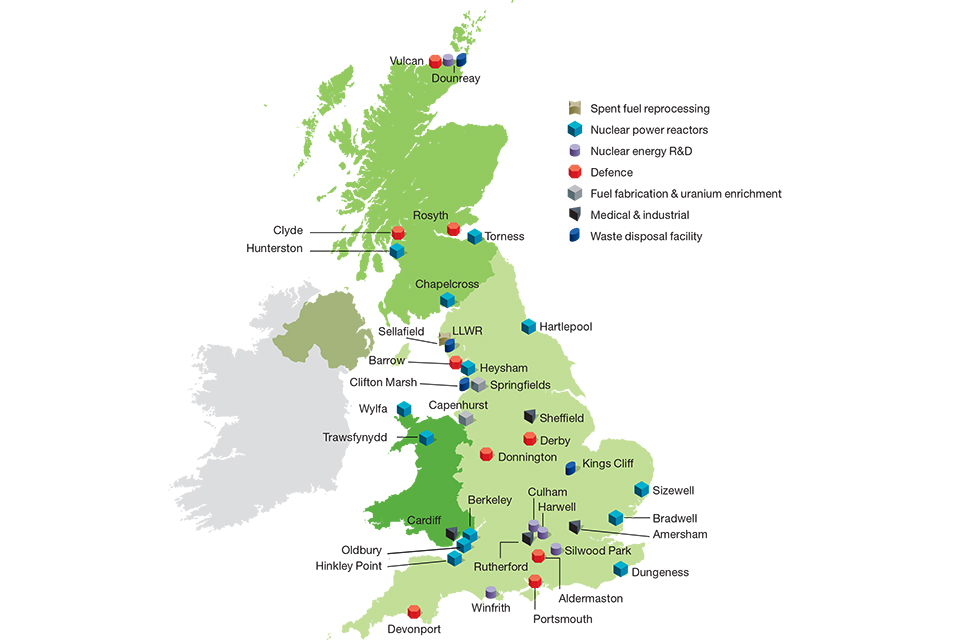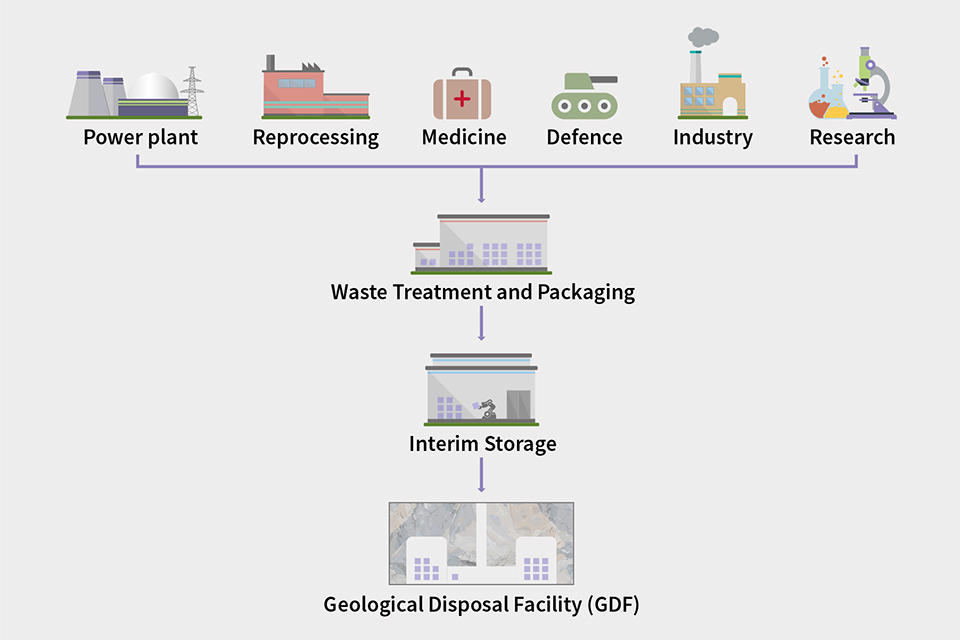The UK's nuclear history
Putting geological disposal into context
Our nuclear legacy
The United Kingdom is a pioneer of nuclear technologies, which have been a part of our daily lives for more than 70 years. Nuclear power has delivered great benefits: it has supported national defence, generated electricity for more than 70 years and our country remains a world-leading nuclear enterprise.
Today the UK is faced with the challenge of cleaning up the legacy of its early nuclear operations - a large-scale programme undertaken by the Nuclear Decommissioning Authority (NDA). This includes delivering innovative solutions for managing radioactive waste that meet today’s safety standards and will protect us into the distant future.
Why we use nuclear energy today
UK Government policy is to have a wide mix of energy supplies, so we use nuclear alongside other energy sources, such as gas and solar. Today, nuclear energy generates around one fifth of the country’s electricity, and under current government proposals that include Hinkley Point C, some of our power will come from nuclear sources in the future.
There are important reasons why nuclear is part of the mix:
-
it’s a low carbon choice that supports the UK’s climate change goals: nuclear power stations generate electricity without emitting greenhouse gases like carbon dioxide and methane
-
nuclear power plants produce electricity 24 hours a day, whatever the weather
-
nuclear power plants don’t require a daily supply of new fuel to operate, unlike gas, coal and biomass plants
Where else does radioactive waste come from?
Besides nuclear power generation, radioactive waste comes from:
-
Medical - in particular, radioactive materials are used to sterilise equipment, and help diagnose and treat medical illnesses.
-
Industry - for example, gamma rays are used to test the quality of welds or the thickness of products, such as paper.
-
Defence - includes the operation of active nuclear-powered submarines and the decommissioning of retired submarines.
-
Research and development - from nuclear fusion technology to developing new radiotherapy treatments to testing novel solid materials for encapsulating liquid radioactive wastes.
The full list of radioactive waste present in our country is kept up to date and published on the UK’s Radioactive Waste Inventory website.
To learn more about radioactivity, read or download
What we need to do now
The radioactive waste resulting from power generation, medicine, defence and other industries needs to be managed carefully. Existing waste is currently stored above ground at more than 30 sites around the UK. These surface stores can be safe for many decades, but require continuous protection to keep them secure and in good condition, as the waste remains radioactive for hundreds of thousands of years.

UK sites handling radioactive waste
There is international consensus that geological disposal is the safest and most secure way to manage higher activity waste for the long term, and that a Geological Disposal Facility (GDF) will ensure that the responsibility of continually protecting this waste is not passed on to future generations.

A diagram showing the sources of radioactive waste and the process for managing radioactive waste through treatment, packaging, interim storage and then permanent disposal in a GDF. [Source and management of radioactive waste]
Science file
For further information about radioactive waste, read our science file
About us
Nuclear Waste Services (NWS) is a public organisation part of the NDA group, responsible for delivering safe geological disposal in the UK. Find out more about NWS.
If you would like to receive email notification of updates to these pages, please sign up to our e-bulletin service